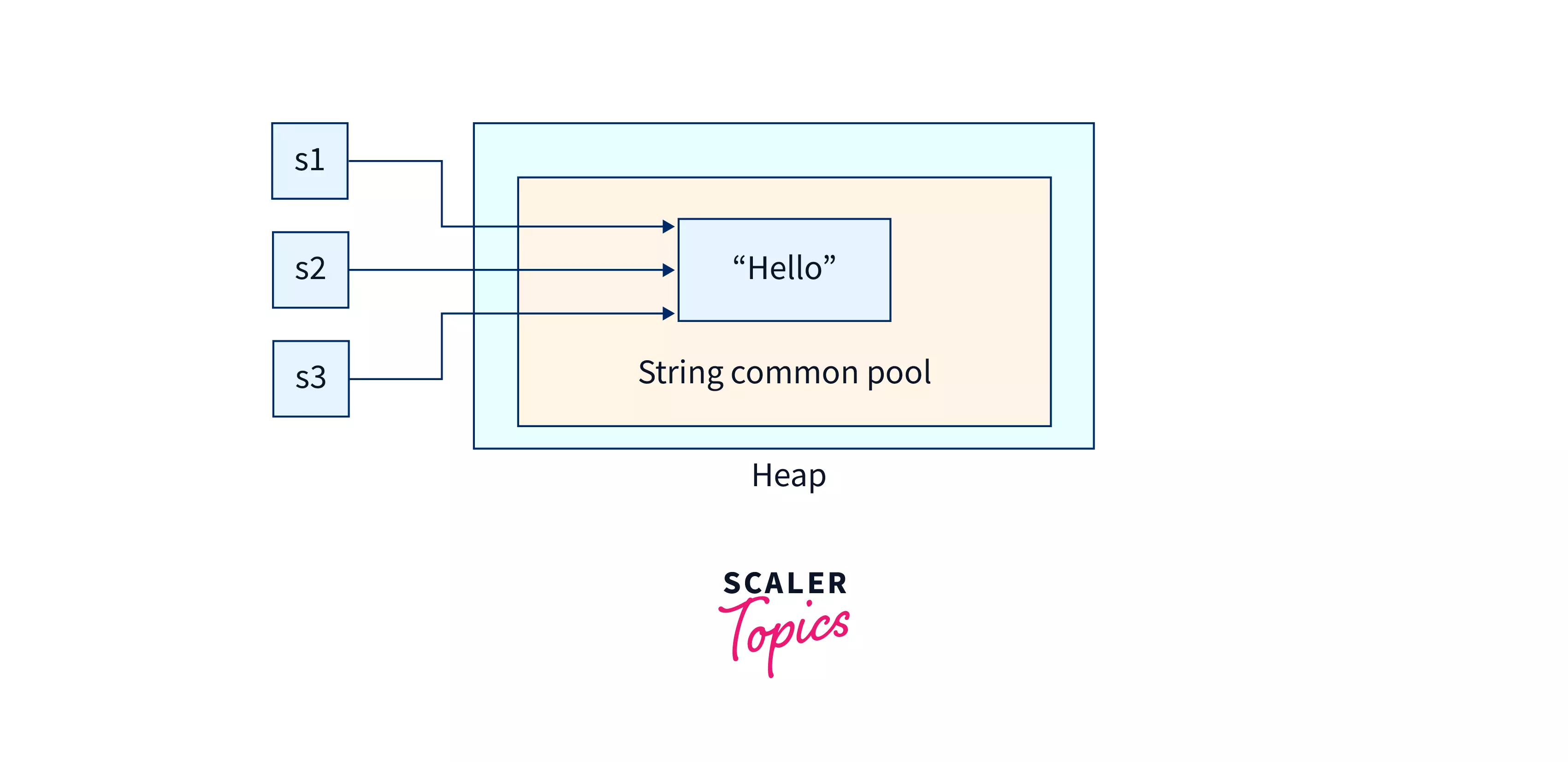Why Are Strings Immutable in Java? Understanding the Core Concepts
Wiki Article
What Is Immutable Strings and Exactly How It Functions
In the world of programming, recognizing the idea of unalterable strings is paramount for developing safe and durable applications. Unalterable strings refer to strings that can not be modified after they are developed, making certain data integrity and predictability within the code. This essential concept plays a crucial function in numerous programming languages and uses an one-of-a-kind approach to handling information. By checking out the ins and outs of exactly how unalterable strings work, one can uncover a world of advantages and opportunities that can boost the quality and effectiveness of software program advancement.The Fundamentals of Immutable Strings
Unalterable strings, as a fundamental principle in shows, are character series that can not be changed as soon as they are produced. This means that as soon as a string is assigned a value, that worth can not be changed. In languages like Python and Java, strings are unalterable things, leading to various implications in regards to memory administration and data honesty.Among the crucial benefits of immutable strings is that they offer a feeling of safety and security in information control. Because the material of an unalterable string can not be changed, it ensures that the original data continues to be undamaged, lowering the threat of unplanned modifications during program implementation (Why are strings immutable in Java?). This property also simplifies debugging processes, as designers can rely on that once a string is specified, its value will not be accidentally changed
Moreover, unalterable strings promote effective memory use. When a brand-new string is produced based on an existing one, rather than customizing the original string, the brand-new worth is kept independently. This strategy boosts performance by reducing memory fragmentation and simplifying memory allowance procedures. Overall, recognizing the fundamentals of unalterable strings is important for grasping shows ideas and maximizing code effectiveness.
Benefits of Unalterable Strings
Building upon the protection and efficiency benefits of unalterable strings, their advantages include improving code reliability and streamlining concurrent shows tasks. By being unalterable, strings can not be customized after creation, which removes the danger of unexpected adjustments in the data they save. This inherent immutability makes sure that when a string is produced, its value continues to be constant throughout the program's implementation, minimizing the opportunities of pests brought on by unanticipated modifications.Furthermore, unalterable strings add to code reliability by making it much easier to reason regarding the state of a program. Considering that strings can not be transformed, programmers can rely on that a string will certainly constantly hold the exact same value, simplifying debugging and upkeep efforts. This predictability leads to extra secure and reliable codebases.

Execution in Programming Languages
Within various shows languages, the unification of unalterable strings is a basic aspect that impacts exactly how information is dealt with and controlled within code structures. The application of immutable strings varies throughout various shows languages, with each language using its very own systems to sustain this idea.
In contrast, languages like C and C++ do not have integrated assistance for unalterable strings. Designers in these languages should manually carry out immutability by imposing policies within their code to prevent straight modifications to string items.
Best Practices for Collaborating With Unalterable Strings
When taking care of immutable strings in programs languages like Java and Python, sticking to finest methods ensures reliable and safe information adjustment. One of the key finest methods is to use StringBuilder or StringBuffer rather than directly controling strings, specifically when dealing with substantial concatenation operations. These courses offer mutable options for string adjustment, helping to prevent unnecessary memory allotments and enhancing performance.In addition, when working with delicate data such as passwords or API keys, it is important to avoid keeping them as ordinary text in unalterable strings. Making use of secure storage mechanisms like char ranges or specialized collections for dealing with sensitive info aids alleviate security risks linked with immutable strings.
Real-world Applications and Examples
Discovering functional executions of immutable strings in numerous sectors reveals their substantial effect on information resource integrity and system integrity. In the healthcare field, immutable strings play an essential function in making certain the protection and privacy of client data. By preventing unauthorized alterations to delicate info such as medical records and prescriptions, immutable strings aid maintain conformity with stringent privacy policies like HIPAA.Financial organizations likewise benefit from the unalterable nature of strings to boost the safety and security of client information and transaction records. Immutable strings aid protect against fraud and unapproved alterations to financial info, supplying a robust defense versus cyber risks and ensuring the trust fund and self-confidence of clients.

Final Thought
Finally, unalterable strings are taken care of and unchangeable series of characters that offer advantages such as thread safety and improved performance in programs. They are carried out in various shows languages to make sure data stability and safety and security. Best techniques for collaborating with immutable strings consist of staying clear of straight modifications and making use of techniques that return new string items. Real-world applications of immutable strings include information encryption, caching, and string manipulation jobs.Unalterable strings refer to strings that can not be modified after they are created, ensuring information integrity and predictability within the code. When moved here a new string is produced based on an existing one, rather than changing the initial string, the new worth is saved individually.In languages like Java and Python, strings are immutable by default, indicating that as soon as a string object is developed, its worth can not be altered - Why are strings immutable in Java?. Best methods for working with immutable strings include preventing direct adjustments and using approaches that return brand-new string things. Real-world applications of immutable strings consist of data file encryption, caching, and string manipulation jobs
Report this wiki page